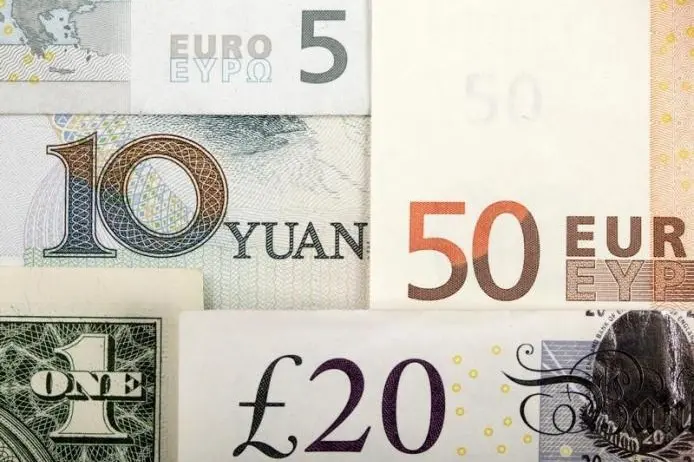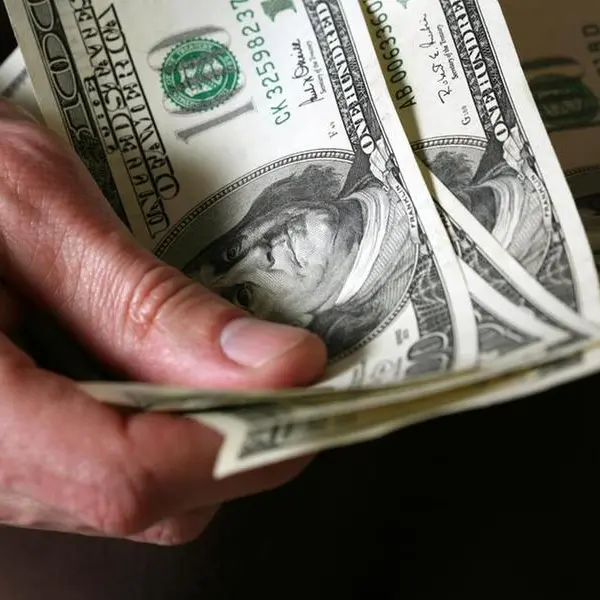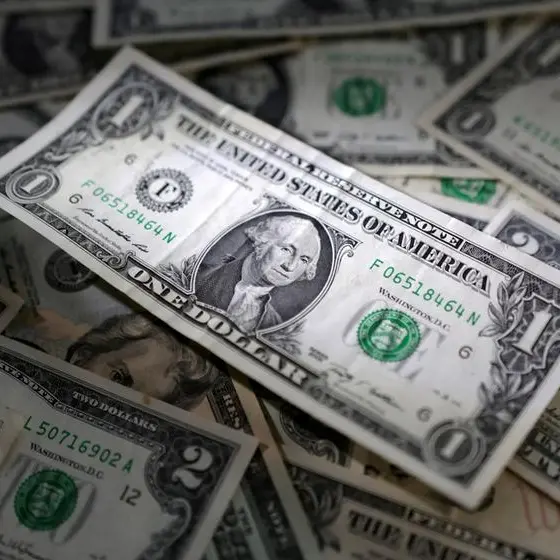PHOTO
The euro fell on Monday versus a strengthening U.S. dollar on growing concerns about a possible government collapse in France, which would stall plans to curb a burgeoning budget deficit.
The risk premium investors demand to hold French debt rather than benchmark German bonds jumped after France's far-right National Rally (RN) president Jordan Bardella said his party would likely back a no-confidence motion in the coming days unless there were a "last minute miracle".
Leading RN lawmaker Marine Le Pen has given Prime Minister Michel Barnier until Monday to meet her party's budget demands.
The euro fell 0.54% to $1.0516.
"Following some consolidation with U.S. dollar weakness last week, which was not a surprise given the strong post-election dollar rally, we now see some euro weakness on the back of political uncertainty in France," said Athanasios Vamvakidis, head of global forex strategy at BofA.
The greenback recorded on Friday its first weekly fall since September 2023 as the so-called Trump trade faded.
"The euro can remain under pressure until we get some clarity on the French budget," BofA's Vamvakidis added.
Several analysts still reckoned that Le Pen didn't want to bring down the government as she could be blamed for a financial and economic crisis in France.
The yield spread between French and German 10-year government bonds – a gauge of the premium investors demand to hold French debt – rose 5 basis points (bps) to 85 bps after hitting 90 bps last week, its highest level since 2012, during the euro area's sovereign debt crisis.
THE TRUMP SHIFT SUPPORTS THE DOLLAR
The greenback rose as President-elect Donald Trump marked a shift from his prior advocacy of a weaker dollar by demanding that BRICS member countries commit to not creating a new currency or supporting another currency.
The Kremlin said on Monday that any U.S. attempt to compel countries to use the dollar would backfire.
The U.S. dollar index – a measure of its value relative to a basket of its main peers -- rose 0.45% to 106.26.
The Chinese yuan quickly slipped to a 4-1/2-month low at 7.2871 per dollar.
Key to the outlook for rates will be the November payrolls report due Friday where median forecasts favour a rise of 195,000 following October's weather and strike-hit report, which could also be revised given a low response rate for that survey.
The jobless rate is seen edging up to 4.2%, from 4.1%, which should keep the Federal Reserve on course to cut by 25 basis points on Dec. 18.
Markets imply an around 60% chance of such an easing, though they also only have two more cuts priced in for all of 2025.
A host of Fed officials are due to speak this week, including Fed Chair Jerome Powell on Wednesday, while other data include surveys of manufacturing and services.
The dollar regained 0.28% on the yen to 150.14, having shed 3.3% last week in its worst run since July. Support lies around 149.47 with resistance at 151.53.
Over the weekend, Bank of Japan Governor Kazuo Ueda said the next interest rate hikes are "nearing in the sense that economic data are on track", following figures showing Tokyo inflation picked up in October.
"Overall, the comments reinforce our updated forecast for the BoJ to hike rates again as soon as next month which is helping to provide more support for the yen heading into year end.," said Lee Hardman, senior currency analyst at MUFG.
Data out Monday showed business investment running at a healthy 8.1% clip in the third quarter, encouraging markets to price in a 63% chance the BOJ will hike by a quarter point to 0.5% at its policy meeting on Dec. 18-19.
Economists expect data on labour earnings this week should show a further pick-up.
(Reporting by Stefano Rebaudo; Editing by Shri Navaratnam, Gareth Jones and Toby Chopra)





















